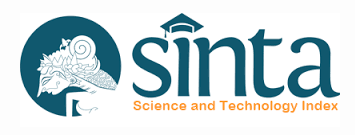FUNGSI KOMUNIKASI ISLAM DI ERA DIGITAL
Abstrak
Communication is a very important thing in everyday life. Through communication, there is an interaction between communicator and communicant with the aim of achieving an equation. The communication process can be interpreted as an activity of 'transfer information' or message from the sender of the message as a communicator and to the recipient as a communicant. In the communication process aims to achieve mutual understanding between the two parties involved in the communication process. In the process of communication, the communicator sends messages or information to the communicant as the target of communication. In the communication process, it must work as its function. No exception to Islamic communication. The functions of Islamic communication are very important to be implemented so that communication is carried out not only as a process but communicators and communicants can get a good impact. Islamic communication functions are discussed in several parts, namely: information functions, convincing functions, reminding functions, motivating functions, social functions, guidance functions, satisfaction functions, spiritual, and entertainment functions. In the digital era with the rapid development of media, the function is easily applied because it follows the convenience given to communicators and communicants. But there needs to be limitations that must be made so that the functions of Islamic communication that are applied are able to bring benefits to themselves and society in general and avoid things that are not in accordance with the values of religion and culture adopted.
Referensi
Ass, Djamalul Abidin. Komunikasi dan Bahasa Dakwah. Jakaera. Gema Insani Press. 1996.
Budiman, Jamaluddin. Komunikasi Islam. Jakarta. Academia Press. 2001.
Cangara, Hafied. Pengantar Ilmu Komunikasi. Edisi. 2. Jakarta. Rajawali Pers. 2012.
Effendy, Onong Uchjana. Ilmu Komunikasi Teori dan Praktek. Cet. 21. Bandung. PT. Remaja Rosdakarya Offset. 2007.
Hefni, Harjani. Komunikasi Islam. Pontianak. IAIN Pontianak Press. 2014.
Hendri. Komunikasi Islam. Jakarta. PT. Fajar Interpratama Mandiri. 2005.
Muis, Andi Abdul. Komunikasi Islam. Bandung. Remaja Rosdakarya. 2001.
Mulyana, Deddy. Ilmu Komunikasi Suatu Pengantar. Cet. 12. Bandung. PT. Remaja Rosdakarya Offset. 2008.
Munir. Metode Dakwah. Jakarta: Kencana. 2009.
Suprapto, Tommy. Pengantar Ilmu Komunikasi dan Peran Manajemen dalam Komunikasi. Cet. 1. Yogyakarta. Caps. 2011.
Once an article was published in the journal, the author(s) are:
granted to the journal right licensed under Creative Commons License Attribution that allows others to share the work with an acknowledgment of the work's authorship. permitted to publish their work online in third parties as it can lead to wider dissemination of the work. continue to be the copyright owner and allow the journal to publish the article with the CC BY license receiving a DOI (Digital Object Identifier) of the work.





